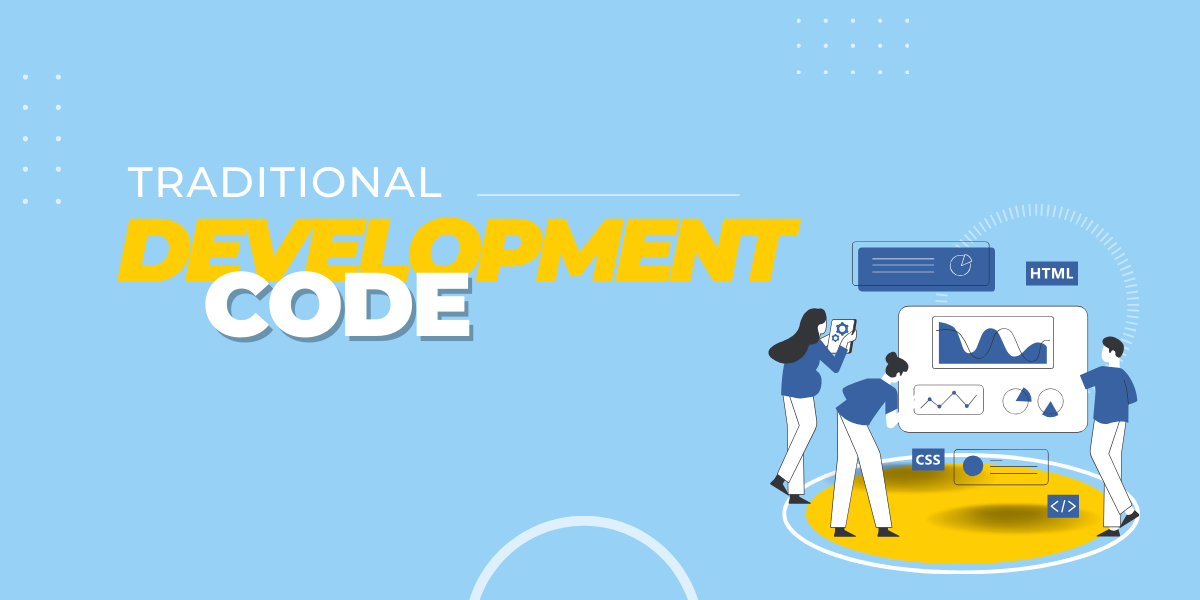In today's digital age, building powerful applications is the lifeblood of business success. But with the rise of no-code app builders and low-code development platforms, a new question emerges: is traditional coding still relevant in 2024? The answer is a resounding YES for specific reasons. While no-code solutions offer speed and accessibility, traditional development offers unmatched control, scalability, security, and access to a wider talent pool, making it the perfect choice for businesses with complex needs and long-term vision.
Unparalleled Control and Flexibility
Traditional coding grants you the ultimate power to sculpt your application into a perfect reflection of your unique vision. Unlike the limitations of pre-built components in no-code platforms, developers can tailor every aspect – features, functionalities, and integrations – to seamlessly align with your specific business requirements. This granular control ensures your application is not just functional, but perfectly optimized to achieve your goals. Creating no-code apps can be a great starting point, but for true customization, traditional development reigns supreme.
Built to Scale with Your Growth
A successful business is a growing business. Traditional development empowers you to build applications that can scale efficiently alongside your expanding needs. Whether it's handling increased user traffic, managing larger data volumes, or integrating with complex systems, a traditionally coded application can adapt and perform seamlessly. This ensures your technology remains robust and reliable, a crucial foundation for continued success. While some low-code development platforms boast scalability, traditional development offers a more assured path for handling significant growth.
Long-Term Ownership and Independence
Choosing traditional development means owning the source code and data that forms the core of your application. This frees you from dependence on specific no-code platforms and their potential restrictions (remember, the code behind those platforms is not yours). You have complete control over your application's future, allowing for modifications, updates, and integrations as your needs evolve. This independence empowers long-term strategic decision-making and ensures your application remains a valuable asset, not a rented service.
Security You Can Trust
Certain industries and regulations demand strict adherence to rigorous security protocols. Traditional development offers greater flexibility in implementing robust security measures that meet the specific needs of your business. This includes the ability to customize access controls, encrypt sensitive data, and ensure compliance with industry regulations. When handling sensitive information or operating in highly regulated environments, traditional development provides the peace of mind of a secure foundation for your application. Code AI solutions can be integrated with traditional development for enhanced security measures in some cases.
Access to a Wider Talent Pool
Building complex applications often requires a team of highly skilled developers with expertise in specific programming languages and technologies. Traditional coding opens doors to a much wider talent pool compared to no-code platforms. This allows you to find developers who possess the precise skillset and experience necessary to bring your vision to life. By leveraging a broader range of expertise, you can ensure your application is built with the best possible tools and techniques, maximizing its potential for success.
While no-code solutions offer undeniable advantages for simple applications, traditional development remains a powerful tool for businesses with complex needs and long-term vision. It offers unparalleled control, scalability, security, and access to a wider talent pool, ensuring your application can evolve and grow alongside your business. Ultimately, the best development approach depends on your specific needs and priorities. Carefully consider project complexity, budget, timeline, and long-term goals to make an informed decision that empowers your business to thrive in the digital landscape.




